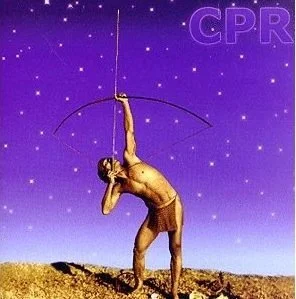During his liver crisis in the early 90’s, David Crosby first met his son James Raymond. Turns out he was a fantastic musician and the two formed a trio with Jeff Pevar. They called it CPR for Crosy, Pevar, Raymond, but the overtones of resuscitation are fairly obvious. Their first album was, I think, quite a masterpiece of songwriting, harmony, and feeling.
The opening track, Morrison, is a critical review of Oliver Stone’s Doors movie by someone who was there. Crosby remembers Morrison as lost in a desert fog, not the shaman of legend. As a first track, the tune sets the stage for what is to come - rich 3-part harmony ala CSN just outside the folk/pop box musically.
Crosby and Pevar play with their guitar-based affinity on a couple of tracks. Little Blind Fish in particular slaps in and out of a suggestion of a blues acoustic shuffle to create a delicious groove. It’s All Coming Back to Me Now is the song that sounds the most like a CSN track. Pevar’s soloing makes me think that Stephen Stills might have taken it further yet with his Lousiana roots.
Melancholic insights string through several tracks that resonante with the resurection theme. That House and Somehow She Knew capture the vulnerability of being stuck in deep pain. The imagery and mood in That House puts you right with a scared teenager feeling powerless to escape. But of course the final track is what defines and completes the theme. Crosby died this year, almost 30 years after recording this album, but at the time he was still working through his brush with death. Time Is the Final Currency speaks of the sentiment that appeared to define the rest of his life: joy at the miracle of being alive and the urgency that comes from thinking the end might be nigh.
But Raymond’s contributions to this album are really what make this a masterpiece and not just a David Crosby album. His keyboards highlight just how much that keys were needed throughout Crosby’s career. Considering his discograpghy and band choices following this album, it seems like he heard it that way too. Raymond’s voice, though, is what distinguishes his contributions musically. Contrasted with the gnarly, weathered matte of Crosby and Pevar, Raymond is unsullied, not innocent but perhaps with an everyman quality. Certainly lighter. His writing in One for Every Moment and Yesterday’s Child reveal an advanced keyboardist’s style derived from having all the notes right there in front of him. The music is fluid and languid and, most importantly, fitting to the lyrical sentiments. Yesterday’s Child stands out as a bridge between the hippies of his father’s age and his own generation.
I know CPR enjoyed initial commercial success with this album but it seems to have faded. I think it stands up there with CSN (1977) and some tracks of the Crosby/Nash duo. I certainly consider this one of Crosby’s best, even beyond his spate of more recent albums in which he seemed to achieve the musical sophistication he had been aiming towards for decades.
